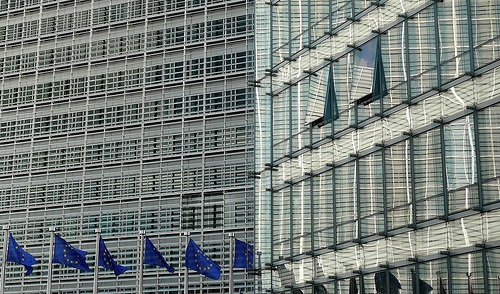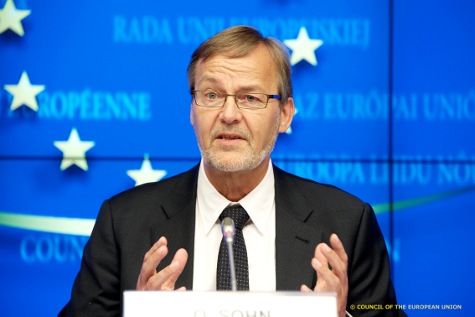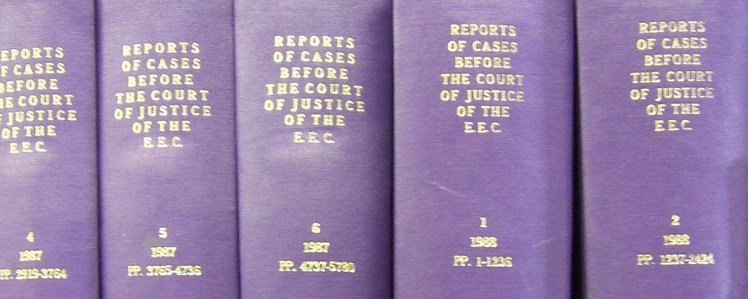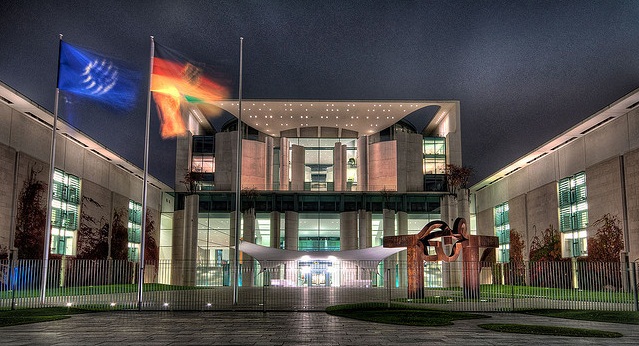EU Unitary Patent / Unified Patent Court: The Final Showdown Is Nigh
Recently Document 10059/12 originating from the Danish EU Presidency and dated May 24, 2012, has been released to the public. It is titled Draft Agreement on the creation of a Unified Patent Court – Suggested way forward for a political agreement and addresses Permanent Representatives Committee (Part 1) / Counci (COREPER1). The Document re-iterates that, according to the Danish Presidency, the creation of unitary patent protection and the Unified Patent Court are key drivers for strengthening economic growth and job-creation in the European Union and cornerstones in building a strong science base in Europe.
Again according to that Document, on December 05, 2011, the Competitiveness Council had an exchange of views on the last outstanding issues regarding the creation of a Unified Patent Court based on Document 18239/11. At the end of those discussions, and while keeping in mind that nothing is agreed until everything is agreed, delegations had reached a general agreement on all but one outstanding issue, namely the place where the seat of the Central Division of the Court of First Instance will be situated.
No substantial portions of Document 18239/11 have been released yet; the heavily redacted published version only discloses some points of interest as follows:
- Renewal fees
- The financial contribution of the Member States hosting a local division, a regional division, the central division of the Court of 1st Instance or the Court of Appeal
- Other financial contributions of the Member States
- Court’s fees
- Language of proceedings
- Actions to be brought to the central division
- Transitional period
- Revision clause
- Number of ratifications required for the entry into force
- Breeders’ privilege
- Local divisions
- The seat of Central Division of the Court of 1st Instance, the seat of the Court of Appeal with the Registry and the seat of the Patent Mediation and Arbitration Centre
You will note that apparently the issue of the rights of European Patent Attorneys to represent their Clients is not mentioned on this list.
Now back to Document 10059/12. This text further discloses that at an informal meeting of the members of the European Council on January 30, 2012, the participating Member States (i.e. all EU Member States except ES, IT) stated their commitment towards reaching a final agreement on the European patent reform at the latest in June 2012. This commitment was confirmed by the European Council on March 01-02, 2012, and by the members of the European Council on May 23, 2012. Based on the common understanding that the texts of the draft Agreement on a Unified Patent Court and of the draft Statute of that Court have been thoroughly discussed under the Polish Presidency, the Danish Presidency is reported to have undertaken intensive consultations, aimed at reaching a compromise on the last outstanding issue concerning the seat of the Central Division. As a follow up on these consultations, the Danish Presidency invited the delegations of the participating EU Member States to discuss the location of the seat of the Central Division of the Court of First Instance with a view to reaching a political agreement.
Finally, reference is made to the fact according to which the Competitiveness Council on December 05, 2011, the participating Member States reached general agreement on a draft declaration of the contracting Member States concerning the preparation for the coming into operation of the Unified Patent Court, as contained in Document 17580/11 (Document again heavily redacted, little substantial disclosure). In response to several Member States having expressed the need for further clarification on the process following a political agreement on the patent package, the Danish Presidency now circulates a draft statement originating from the Danish Presidency but apparently also supported by the incoming Cypriot Presidency on the process following such a political agreement, as set out below:
Continue reading »
To answer the above question right away, I do not hope so because otherwise the future of the European Community/Union, the great idealistic and visionary European project, would lie in ruins already. As a patent professional and keen enthusiast of the European idea, please allow me to share some personal comments based on the findings of my earlier posting on the Deficiencies of the EU Legislative Process for Implementing a Unified Patent Infrastructure, namely
- ignorance as to users and experts and their (mostly) well-founded observations;
- a striking lack of transparency preventing public involvement;
- an information policy that disguises more than it discloses; and
- national egoisms, inappropriate horse-trading and power games.
As already expressed earlier, I think that these frightening mechanisms and structural deficiencies of the European policy-making process may endanger stability and acceptance of and confidence in the European Union as a whole. As none of those features is adequate for a democratic legislation process in a cooperating Europe, the conclusion might be that Europe’s democracy is in danger. This, apparently, is at least the opinion of Mr Martin Schultz, President of the European Parliament, who recently demanded that a “restart” of European democracy is required, as “the Union must make the decision-making process more transparent so that a genuine European public sphere can emerge”. Well roared, lion!

While some understand the 'Berlaymont' façade as symbol for a spirit of transparency, openness, and citizen involvement of EU policy making, others only recognise a good business for window wipers.
The epic and painful process of drafting and implementing a unified European patent infrastructure, which got stuck again on the latest Competitiveness Council meeting of 31 May/1 June 2012 (see our reports here and here as well as further coverage [1], [2]) discloses frightening mechanisms and structural deficiencies of the European policy-making process that may endanger stability and acceptance of and confidence in the European Union as a whole, particularly before the background of the current severe financial and depths crisis that shakes the Union like nothing else before.
Upon a closer look at the process, four major problems can be identified that prevent EU politicians to find a reasonable solution satisfying the needs of the European innovative economy:
- Ignorance as to users and experts and their mostly well-founded observations;
- A striking lack of transparency preventing public involvement;
- An information policy that disguises more than it discloses; and
- National egoisms, inappropriate horse-trading and power games.
Below I collect some striking examples of each of the above four phenomena.
Yesterday I had posted an article on the failure on the 3169th meeting of the Council of the EU in Competitiveness configuration (Internal Market, Industry, Research and Space) which was held in Brussels. As indicated, the final result was that the decision on the seat of the central division of the EU Unified Patent Court is said to be taken by the European Council at its meeting on June 28 and 29, 2012.
Well, the European Council should not be mixed up with the Council of the European Union.
The European Council consists of the Heads of State or Heads of Government of the Member States, together with its President and the President of the Commission. It defines the general political direction and priorities of the European Union. With the entry into force of the Treaty of Lisbon on 1 December 2009, it became an institution. Its President is Mr Herman Van Rompuy.
To the contrary, the Council of the European Union is the EU institution where the Member States’ government representatives sit, i.e. the ministers of each Member State with responsibility for a given area. The composition and frequency of Council meetings vary depending on the issues dealt with.
I must confess that due to some sloppiness in writing and in sake of brevity I frequently have labelled the Council of the European Union as “EU Council”, even in this blog. This is confusing. I should avoid this language in future.
So, after this preliminary digression it is now clear what will happen on June 28 and 29, 2012:
Ms Merkel and all of her colleagues on EU level are poised to undertake a (final?) approach to find a political solution to the question of the seat of the central division of the EU Unified Patent Court. Maybe that there is even a slim chance is that Spain and Italy (which now have changed their respective government since the failure of the EU Community Patent approach in 2010) jump on the bandwagon.
The German broadsheet Handelsblatt today runs a story indicating that on the 3169th meeting of the Council of the EU held yesterday the German delegation kept on fiercely fighting for Munich as seat for the central division but on the level of ministers no agreement could be reached.
In view of this situation it appears to be quite safe to say that the EU Unified Patent Court and, of course, the linterlinked enhanced co-operation for creating a EU Unitary Patent, will not only be dead with regard to the duration of current Danish EU Presidency (ending on July 01, 2012 anyway) but probably also for a much longer time should the EU Euro crisis rise to higher levels such that the Heads of State / Heads of Government to be assembled in Brussels later this month need to be busy with firefighting on a full-time basis, having no spare time to resolve Intellectual Property issues.
In the Handelsblatt story, unidentified EU Diplomats are cited to have said that a solution will probably be found as part of a “package”. This means that the country receiving the seat will be required to give in concerning some other compromise elsewhere. Or, the other way round: A country that is very generous elsewhere might expect to receive the seat of the central division on the basis of reciprocation. Hence, if the Euro crisis does not hamper the entire summit, Ms Merkel might have a chance to bring home the central division as some sort of a consolation gift if she gives in with regard to some of the pressing issues in the context of the current EU (Euro) crisis.
Furthermore, Handelsblatt explicitly writes that especially the Italian Government might be ready to join the club in a last minute move but was unable to do so yesterday because of they were unhappy with the state of the discussion on the seat issue. I can only hope that they do not carry on with nurturing pipe dreams of bringing the central division to Milan.
Obviously nobody on EU level is seriously negotiating any technical details of the patent package (Unitary Patent including translation agreement plus Unified Patent Court) any more. As said before, patent experts have been kicked out unceremoniously. If (and only if) an agreement on the seat issue is reached, the entire matter probably will be pressed on an as-is basis through the institutions anyway.
[UPDATE 2012-06-01] See also this report by Sophie Mosca on europolitics.info:
“Italy proposed, in February, its candidacy for the seat of the central division of the unitary patent court system as a way of breaking the stalemate. Although its proposal was initially rejected because it was presented after the deadline of 4 December 2011 for the submission of candidacies, it has come back to the fore. “The Netherlands did the same recently, stressing that it did not wish to make the situation worse, but to propose The Hague as a candidate in order to calm the debate,” an informed source told Europolitics.”
This means that the Italian Government indeed wants to cash in sort of a dividend on dropping Mr Berlusconi’s opt-out refusal to join the EU Community patent project in 2010. I am not amused.
Today, the 3169th Council meeting of the EU Council in Competitiveness configuration (Internal Market, Industry, Research and Space) was held in Brussels, chaired by Mr Ole Sohn, Minister for Business and Growth of Denmark. According to Document 10362/12, the Council
– held a preparatory debate in order to gather consensus on the location of the seat for establishing a unified patent court, with a view to a successful decision on the seat by the European Council at its meeting on 28-29 June 2012.
This means, of course, that once more no political solution was reached.
A few days ago, the Danish Presidency had circulated an important Document 10059/12 titled Draft Agreement on the creation of a Unified Patent Court – Suggested way forward for a political agreement which, however, – but no surprise – was not released to the public.
I have heard rumours from confidential sources that at the end of 2011 under the Polish EU Presidency some or all of the political actors dealing with the EU Unitary Patent / EU Unified Patent Court matter decided to drop all expert advice from (internal) civil service experts (from the EU Commission and the delegations of the EU Member States present at the EU Council meetings) in order to force a breakthrough by some purely political decision on the seat of the central division of the Unified Patent Court. If this is true, this information might indeed be suitable to shed some light on the somewhat strange situation last December, when the announcement of the Polish Presidency communicated by Document 17539/11 to organise an initialling ceremony whereby the text of the Unitary Patent Court Agreement could be finalised in Warsaw on 22 December 2011 was eventually rescinded with no clear indication of what really had happened behind the scenes. The official line appeared to be that all problems but the seat of the central division are solved whereas other voices indicated that more substantial issues were still open. Probably the political staff had decided to ignore all opinions from the internal experts, concluding that the entire EU patent project is not suitable to generate a consensus in any foreseeable time amongst experts skilled in this field of law.
Ministers addressed the last outstanding issue in the draft agreement for the creation of a Unified Patent Court, with a view to finalising the “patent package” without delay.
The debate showed that further work was needed to reach consensus on the location of the Central Division of the Court of First instance for the future unitary patent jurisdiction.
At the time being it is not known to me as to what nature the further work was needed to reach consensus on the location of the Central Division of the Court of First instance is supposed to be.
Anti-Patent Campaigners put their trust in François Hollande as EU Council attends to Unitary Patent Court again

The newly elected President of France, François Hollande promising "change". Will he be the first anti-patent campaigner governing an EU state?
Now that François Hollande took office as the new President of France after his marginal victory in the French presidential elections this May, he will now introduce himself to official EU policy on his first Competitive Council meeting on May 31/June 1. The draft agenda for this meeting (cf. item 19), reading “Draft agreement on a Unified Patent Court and draft Statute – Political agreement“, electrifies observers of and parties involved the ongoing European patent legislation saga (see also press release, middle of page 5).
In recent months the upcoming French elections brought the negotiations on the Unified Patent Court Agreement to a complete standstill, as the dynamics between the French, British and German heads of govenment and the general political climate is a crucial factor in this legislative process, especially since the only serious and realistic candidates for the attractive seat of the new UPC Central Division are Paris, London, and Munich and it is frequently announced through official channels that this question is the only remaining open issue.
The EU Council expressed already in January this year its believe that a final agreement can be reached in June 2012 (see official statement) and it was the President of the European Council, Herman Van Rompuy, who clarified in a recent letter that he hopes (or expects) the remaining issues to be sorted out at next week’s Competitiveness meeting:
“[...] This deal is needed now, because this is an issue of crucial importance for innovation and growth. I very much hope that the last outstanding issue will be sorted out at the May Competitiveness Council. If not, I will take it up at the June European Council.”
But IP matters will not become easier in Europe with Mr Hollande, given his apparent openness to positions of critics of the current patent system. In fact, some of the answers (pdf) of Ms Fleur Pellerin (@fleurpellerin), responsible for the digital economy in Hollande’s campaign team, on a tendentious pre-election questionnaire of French anti software patent group “April” appear as if the socialist candidate for president (or his spokeswoman) was one of the ideological leaders of that pressure group:
The patentability of software would induce a partitioning of innovation that would be harmful to the ecosystem seen in its digital together. I am therefore opposed to the patenting of software.
This is a follow-up to Volker ‘Falk’ Metzler’s previous posting titled In Defense of Articles 6 to 9 of the Unitary Patent Regulation and, in particular, to the discussion induced by it.
As can be learnt from the public discussion of the role of the Court of Justice of the European Union (CJEU) and of the European Court of Justice (ECJ) in the context of the planned Proposal for a Regulation of the Council and the European Parliament implementing enhanced cooperation in the area of the creation of unitary patent protection as well as with regard to the still unfinished Draft agreement on a Unified Patent Court there appears to exist – at least in some quarters – a sort of general discontent with the work of those judges presiding in Luxembourg over the entire body of EU law.
For example, our reader Derek Clapton (maybe a pseudonymous author identification?) puts his view on the CJEU in this brief summarising sentence:
To say that the ECJ “is the best functioning institution of the Union” is like saying that Amsterdam is the highest place in the Netherlands – possibly true, but an unimpressive boast nonetheless.
Well, I think it might be interesting to have some deeper insight into the factual basis of this damnation. Mr Clapton gives us a clue when he writes:
If, in answering questions such as how to determine the scope of protection of a patent claim, the ECJ introduces the same degree of uncertainty in patent law as it has in the case of trade mark law, the EU patent system will fail its users, which may lead to manufacturers deciding to locate new factories outside of the court’s jurisdiction. In such case, Spain may be well advised to remain outside of the proposed EU patent arrangements.
And another commenter Peter Lustig (maybe another pseudonymous identification?) argues:
Usually, one would expect renowned senior practitioners of his kind to join him and support his argumentation – there appear to be none so far. Also, the Article 6 to 9-issue is only one in a row of objections, some going to the very core of the project (e. g. the compatibility with the AETR case law of the CJEU) and still remaining unaddressed. With all due respect, but Professor Tilmann’s outstanding reputation should not be allowed to replace founded answers to legitimate questions.
And, even Dr. Jochen Pagenberg himself joins the line of comments by arguing, inter alia, as follows:
If one wants a really unattractive, inefficient, unpredictable and probably extremely expensive patent court system, then we will get it; one must only give the ECJ a chance to receive as many referrals in patent law as possible.
If one wants to see substantive patent law in Europe to be decided by judges without any solid knowledge and experience in this field, then one must involve the ECJ whenever possible.
Well, is this real? It is fair to say that as a humble patent and trade mark attorney I never shall deal with those EU judges in Luxembourg myself. But I have to carefully read important decisions, in particular in the field of trade mark law. And, yes, there are decisions of the Court which I find questionable but that also holds for me when studying decisions from German Courts. A well-known and a bit semi-ironic German proverb says that in court and on the high seas we all are in the hands of the Lord, indicating that awaiting a decision of a Court always bears a momentum of unpredictability. Are the high seas of the CJEU / ECJ excessive in this respect?
Continue reading »
Articles 6 to 9 of the Unitary Patent Regulation relate to substantive patent law. They regulate the right to prevent direct and indirect use of the invention (Art. 6 and 7, respectively), the limitation of the effects of the ‘Unitary Patent‘ (Art. 8) and exhaustion of the rights conferred by the ‘Unitary Patent‘ (Art. 9).
As the question of which EU member state will receive the Central Division of the EU Unified Patent Court (see here, here, and here) is officially seen as the only remaining obstacle to the Unified Patent Court Agreement, the Unitary Patent Regulation already received green light from the EU Parliament’s legal committee (JURI) in late December (see press release) so that the EU Council already began to linguistically finalise the Regulation text in early January.
THE DISPUTE ON ARTICLES 6 TO 9
Even so, a strong and illustrious ‘opposition movement’ of legal professionals and their associations (e.g. EPLAW and Jochen Pagenberg, European Patent Judges and Sir Robin Jacob, Professor Krasser, CIPA), industry representatives (e.g. ICC, IP Federation), and a few politicians (e.g. JURI member Cecilia Wikström (SE, ALDE) [1, 2, 3] and UK IP Minister Baroness Wilcox) demanded Articles 6 to 8/9 to be removed from the Regulation to prevent substantive patent law from becoming subject to review by the European Court of Justice via referral questions according to Article 267 TFEU.
In one of our latest postings on the legal and political shadows of the Unified Patent Court Agreement we concluded that the stuck ‘seat issue’ will now have to be decided on the top executive level, i.e. in personal talks between Federal Chancellor Angela Merkel, Prime Minister David Cameron, and - should he survive the French presidential election in April/May 2012 - Nicolas Sarkozy as the only serious and realistic bits were Berlin, London, and Paris, respectively.
While the German government always claimed the seat of a European Patent Court, should such court ever exist, London became a candidate rather late and only after intervention of the UK legal profession and Paris was considered a compromise location to prevent a deadlock between Munich and London. None of these bits is ideal for everyone as each has considerable drawbacks, as has been recently summarised on FT.com “few other EU countries are happy with a Munich seat because the city is already the home to EPO“, “Britain lacks goodwill or allies“, and “French inflexibility has been damaging“.
After months of intense debate in the EU Council and the EU Parliament’s Legal Affair’s Committee (JURI), the European Parliament was scheduled to have its fist plenary session on the EU Patent Package (Unitary Patent Regulation, Language Regime Regulation, Unified Patent Court Agreement) on coming Wednesday, 14 February 2012.
While Google Search still delivers an entry “Plenary sitting – European Parliament Tuesday, 14 February 2012 Draft agenda. 09:00 – 10:20 Debates. European patent. Creation of unitary patent protection.“, the final draft agenda now announces a Fisheries debate instead.
The k/s/n/h::law blog
Some of the patent attorneys of the KSNH law firm have joined their efforts to research what is going on in the various branches of IP law and practice in order to keep themselves, their clients as well as interested circles of the public up to date. This blog is intended to present results of such efforts to a wider public.
Blog Archives
- November 2013 (2)
- October 2013 (1)
- September 2013 (1)
- August 2013 (2)
- July 2013 (3)
- June 2013 (5)
- March 2013 (5)
- February 2013 (4)
- January 2013 (5)
- December 2012 (5)
- November 2012 (5)
- July 2012 (5)
- June 2012 (8)
- May 2012 (5)
- April 2012 (3)
- March 2012 (4)
- February 2012 (5)
- January 2012 (6)
- December 2011 (12)
- November 2011 (9)
- October 2011 (9)
- September 2011 (4)
- August 2011 (7)
- July 2011 (4)
- June 2011 (1)
Blog Categories
- business methods (6)
- EPC (7)
- EPO (12)
- EU law (92)
- ACTA (8)
- CJEU (4)
- Comitology (1)
- competition law (2)
- Enforcement (6)
- EU Unified Patent Court (62)
- FTA India (1)
- TFEU (2)
- Trade Marks (5)
- European Patent Law (37)
- German Patent ACt (PatG) (1)
- German patent law (5)
- Germany (6)
- Pirate Party (3)
- International Patent Law (4)
- PCT (2)
- IP politics (10)
- licenses (2)
- Litigation (5)
- Patentability (7)
- Patents (12)
- Piratenpartei (2)
- Software inventions (10)
- Uncategorized (9)
- Unitary Patent (24)
- US Patent Law (4)
Comments
- kelle on Germany: Copyright Protection More Easily Available For Works Of “Applied Arts”
- Time Limits & Deadlines in Draft UPCA RoP: Counting The Days - KSNH Law - Intangible.Me on Wiki Edition of Agreement on Unified Patent Court Agreement (UPCA)
- Time Limits & Deadlines in Draft UPCA RoP: Counting The Days | ksnh::law on Wiki Edition of Agreement on Unified Patent Court Agreement (UPCA)
- Wiki Edition of Agreement on Unified Patent Cou... on Wiki Edition of Agreement on Unified Patent Court Agreement (UPCA)
- European Commission Takes Next Step Towards Legalising Software Patents in Europe | Techrights on EU Commission publishes Proposal of amendend Brussels I Regulation for ensuring Enforcement of UPC Judgements
Blogroll
- 12:01 Tuesday
- America-Israel Patent Law
- Anticipate This!
- AwakenIP
- BlawgIT
- BLOG@IPJUR.COM
- BP/G Radio Intellectual Property Podcast
- Broken Symmetry
- Class 46
- Director's Forum: David Kappos' Public Blog
- Gray on Claims
- I/P UPDATES
- IAM Magazine Blog
- Intellectual Property Intelligence Blog
- IP Asset Maximizer Blog
- IP CloseUp
- IP Dragon
- IP Watch
- IP Watchdog
- IPBIZ
- ipeg
- IPKat
- ITC 337 Law Blog
- Just a Patent Examiner
- K's Law
- MISSION INTANGIBLE
- Patent Baristas
- Patent Circle
- Patent Docs
- Patently Rubbish
- PatentlyO
- Patents Post-Grant
- Reexamination Alert
- SPICY IP
- Tangible IP
- The 271 Patent Blog
- The Intangible Economy
- THE INVENT BLOG®
- Think IP Strategy
- Tufty the Cat
- Visae Patentes
The KSNH blogging landscape


This blog and the German-language sister blog k/s/n/h::jur link to the two popular and privately run blogs IPJur und VisaePatentes and continue their work and mission with a widened scope and under the aegis of our IP law firm.
ksnhlaw on Twitter
- No public Twitter messages.
 KSNH::JUR Feed (german)
KSNH::JUR Feed (german)- Ist Verschlüsselung passé? September 6, 2013Auf verschiedenen Feldern beruflicher Praxis ist dafür zu sorgen, dass Kommunikation vertraulich bleibt. Die trifft beispielsweise für Ärzte zu, aber auch für Anwälte, darunter auch Patentanwälte. Einer der zahlreichen Aspekte, die in diesem Zusammenhang eine Rolle spielen, ist die Technik, um die Vertraulichkeit beruflicher Kommunikation sicherzustellen. Wa […]
- EU-Einheitspatent: Demonstrativer Optimismus und Zahlenmystik allerorten – Naivität oder politische Beeinflussung? June 26, 2013Nach mehreren vergeblichen Anläufen zur Schaffung eines EU-weiten Patentsystems wurde 1973 als Kompromiss das Europäische Patentübereinkommen unterzeichnet, welches unabhängig von der seinerzeit noch EWG genannten Europäischen Union System zur zentralisierten Patenterteilung mit nachgeordnetem Einspruchsverfahren durch das Europäische Patentamt schuf. Wie wi […]
- Moderne Zeiten oder: DPMA und Patentgericht streiten über die elektronische Akte April 25, 2013Bekanntlich hat das Deutsche Patent- und Markenamt (DPMA) im Jahre 2013 mit der rein technischen Fertigstellung der Einrichtungen zur elektronischen Akteneinsicht einen wichtigen Meilenstein seines Überganges von der Papierakte zur “elektronischen Akte” erreicht. Im DPMA werden aber bereits seit dem 01. Juni 2011 Patente, Gebrauchsmuster, Topografien und erg […]
- Gutachten zu Forschung, Innovation und technologischer Leistungsfähigkeit Deutschlands 2013 March 11, 2013Unter dem Datum vom 28. Februar 2013 ist die Bundestags-Drucksache 17/12611 veröffentlicht worden Sie trägt den Titel Unterrichtung durch die Bundesregierung - Gutachten zu Forschung, Innovation und technologischer Leistungsfähigkeit Deutschlands 2013. Die Bundesregierung legt dem Deutschen Bundestag seit dem Jahr 2008 […]
- 3D-Printing: Zum Filesharing von 3D-Modelldaten February 25, 2013In meiner kleinen zuvor angekündigten Reihe über rechtliche Aspekte des 3D Printing komme ich heute auf die Frage zu sprechen, ob die Hersteller von Gerätschaften es hinnehmen müssen, wenn Ersatztreile davon – vom Brillengestell über Smartphone-Gehäuseteile bis hin zu Rastenmähermotor-Abdeckungen – gescannt und die daraus […]
- Ist Verschlüsselung passé? September 6, 2013









